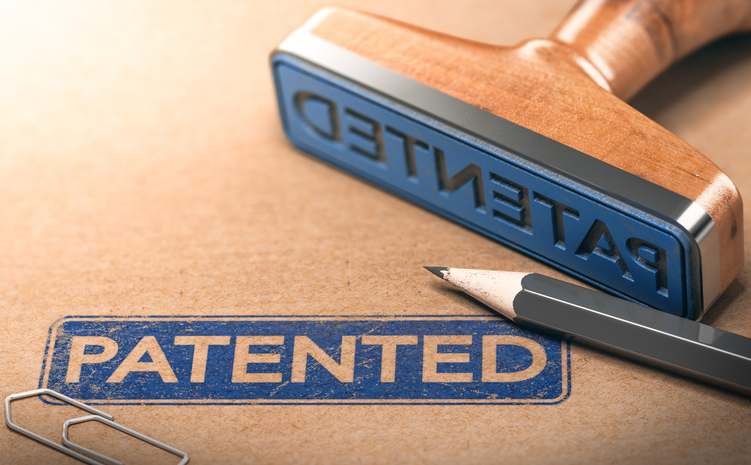Invention Assignment Agreements Can Be Unenforceable Covenants Not to Compete

Last week, we blogged about how a recent California appellate court decision effectively rendered an employee confidentiality agreement as an unenforceable covenant not to compete.
In a similar decision, Whitewater West Indus., Ltd. v. Alleshouse, 2020 U.S. App. LEXIS 36394, the Court of Appeals for the Federal Circuit recently reversed a U.S. district court decision and held that under California law, an invention assignment provision signed by an employee that assigned to the employer patents developed after employment had ceased and without use of the employer’s trade secrets or confidential information violated California’s strong public policy against restraints on trade/covenants not to compete embodied in Section 16600 of the California Business and Professions Code.
In reaching this decision, the federal Court of Appeals rejected the argument that Section 2870(a) of the California Labor Code permits such invention assignments.
Section 16600 of the Business and Professions Code provides that “Except as provided in this chapter, every contract by which anyone is restrained from engaging in a lawful profession, trade, or business of any kind is to that extent void.” There are statutory exceptions in sections 16601, 16602, and 16602.5 for restraint on trade/noncompete provisions relating to sales of businesses, dissolutions of partnerships or dissociations of a partner from a partnership, and a dissolution of a limited liability company or a termination of a member’s interest in a limited liability company, but not for noncompete provisions against former employees.
Section 2870(a) of the Labor Code provides that:
(a) Any provision in an employment agreement which provides that an employee shall assign, or offer to assign, any of his or her rights in an invention to his or her employer shall not apply to an invention that the employee developed entirely on his or her own time without using the employer’s equipment, supplies, facilities, or trade secret information except for those inventions that either:
(1) Relate at the time of conception or reduction to practice of the invention to the employer’s business, or actual or demonstrably anticipated research or development of the employer; or
(2) Result from any work performed by the employee for the employer.
In this case, while employed by Wave Loch, Inc., Richard Alleshouse had entered into an agreement with Wave Loch that contained the following assignment provisions:
a. Assignment: In consideration of compensation paid by Company, Employee agrees that all right, title and interest in all inventions, improvements, developments, trade-secret, copyrightable or patentable material that Employee conceives or hereafter may make or conceive, whether solely or jointly with others:
(a) with the use of Company’s time, materials, or facilities; or
(b) resulting from or suggested by Employee’s work for Company; or
(c) in any way connected to any subject matter within the existing or contemplated business of Company
shall automatically be deemed to become the property of Company as soon as made or conceived, and Employee agrees to assign to Company, its successors, assigns, or nominees, all of Employee’s rights and interests in said inventions, improvements, and developments in all countries worldwide. Employee’s obligation to assign the rights to such inventions shall survive the discontinuance or termination of this Agreement for any reason.
After Alleshouse had ceased being employed by Wave Loch, he and another party filed for and eventually were awarded three patents. Wave Loch’s successor in interest then filed suit, claiming that the invention assignment agreement had been breached by Alleshouse and that the patents should be assigned to Wave Loch’s successor. The district court agreed, and held that the agreement was valid under California law.
In overturning that decision, the Court of Appeals noted that the parties in the case agreed that the patented inventions had not been conceived until after Alleshouse had left Wave Loch’s employment and that no trade secrets or confidential information of Wave Loch had been used. The Court of Appeals reasoned that to give effect to the assignment provisions—which were unlimited in time and geography and would apply to a post-employment invention that was merely “suggested by” his work for Wave Loch—would significantly impair Alleshouse’s ability to work in his chosen profession.
The Court of Appeals then determined that the assignment provisions in Section 2870(a) of the Labor Code only applied to inventions conceived during employment. To hold otherwise, “to authoriz[e] temporally unlimited assignment requirements through its exceptions, would produce a conflict with what we think is otherwise the clear prohibition of §16600 on agreements like the one at issue here.”
The Court of Appeals decision is another timely reminder that courts will not enforce overbroad clauses in agreements with employees that, although not explicitly prohibiting competition, have the practical effect of doing so.
For more information, please reach out to William Ross in the Los Angeles office of Hirschfeld Kraemer LLP, wross@hkemploymentlaw.com, or (310) 255-1828.





